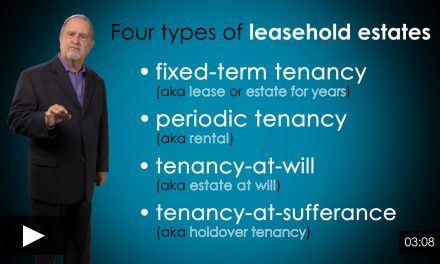Do you think short sellers ought to be taxed on their lender’s short payoff discount as personal income and not be permitted to declare their capital loss on the sale?
- No. (73%, 32 Votes)
- Yes. (27%, 12 Votes)
Total Voters: 44
The following tax benefits are set to expire at the end of 2013:
- mortgage debt forgiveness relief, which currently allows short sellers to skip reporting the difference between their short sale price and the loan amount as income;
- mortgage insurance payment deductions; and
- tax credits for home energy efficient improvements on new and existing homes.
These tax benefits were extended in 2012, but there is currently no existing bill to extend them through 2014. There is, however, still technically time for the House and Senate to pass such a bill if it is drafted.
What will happen if these tax benefits expire?
first tuesday insight
Discouraging homeowners to pursue short sales in 2014 by slapping them with taxes for an “income gain” is the last thing this recovery needs.
Short sellers stand to lose the most if the mortgage relief tax benefits are not extended. Most short sellers are already undergoing some sort of financial hardship in order to qualify for the short sale in the first place. Thus, they could use all the tax benefits they can get to get back on their feet and start contributing to the economy again. That is, afterall, the reason for remedies like short sales in the first place!
Let’s look at the bigger picture. Our economy going into 2014 is still in a state of drawn-out recovery. Jobs remain low and home sales volume is flat, indicating our housing market will not fully recover for several more years, despite recent price peaks.
Related articles:
Currently, California’s one million+ underwater homeowners have the option to pursue a short sale if the conditions are right. Then, they can relocate to pursue new jobs and more manageable housing payments (so they may contribute to the economy by putting their hard-earned money into purchasing other goods).
However, taking away this tax benefit discourages underwater homeowners from pursuing short sales, encouraging them to stay chained to their black hole asset — just like the recovery, stuck in place.
Unless, that is, they choose to strategically default and the lender enters a full credit bid at the foreclosure sale. But lenders have learned to accept less than a full credit bid to encourage speculators to bid and buy the property at trustee’s sales (which is occurring more than half the time in late 2013).
These short sales and foreclosures expose the wiped-out homeowner to discharge-of-indebtedness income for the difference, the discount, without an extension of the Mortgage Forgiveness Debt Relief Act — unless the mortgage is a nonrecourse loan such as a purchase-assist loan used to fund the purchase of the borrower’s principal residence.
Thus, recourse loans are also covered by the Mortgage Forgiveness Debt Relief Act, which include:
- refinancing, a loan which funds the payoff of another loan; and
- home equity loans.
An 80-year-old nonrecourse IRS rule exists apart from the Mortgage Forgiveness Debt Relief Act that provides relief from taxation of lender discounts on short sales and foreclosures for Californians with purchase-assist financing on their homes. In contrast, this rule does not offer any relief for the many homeowners who refinanced or took out home equity lines of credit (HELOCs) during and after the Millennium Boom. [26 Code of Federal Regulations §1.1001-2; Internal Revenue Code §108; Calif. Revenue & Taxation Code §17144.5]
Maybe Congress will rise above its present proclivity for austerity and recall that these tax benefits are not just favors to underwater homeowners. Rather, they are relief measures necessary to repair the real estate market as it continues to work through its negative equity backlog.
These conditions were brought on by the deregulation of lenders by Congress, and only Congress or a decade in time can cure them.
Allowing negative equity homeowners, and we still have one million in California alone, the ability to consume real estate, goods and services free of insolvency is necessary to keep the recovery on track. Especially given our national government insists on reducing its purchases and hiring.
In other words, the recovery has to come from somewhere, and if not from fiscal stimulus, then at least give our debt-saddled consumers a leg up with some tax relief.
Re: Homeowner tax benefits seem unlikely to get Congress’s attention before they expire from the Washington Post














